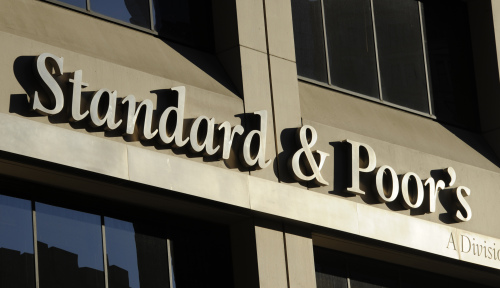PARIS (AP) ― France reacted with outrage after the Standard & Poor’s ratings agency accidentally sent out a message saying it was downgrading France’s prized “AAA” credit rating during a tumultuous week in Europe’s protracted debt crisis.
Germany and the European Commission also bristled Friday, warning ratings agencies to act responsibly and underscoring European unease over the power they wield over governments.
The error stood for an hour and a half Thursday while the U.S. and most European markets were open before it was corrected by the agency ― spooking investors by foreshadowing an event that would rock the 17-nation eurozone.
The accident came just as Greece and Italy seemed to be getting on the right track by establishing new interim governments led by financial experts who might guide them out of the continent’s debt crisis. For a moment, it seemed as if the crisis was again worsening in its one step forward, two steps back way.
Despite Standard & Poor’s statement saying the original message had gone out to some subscribers because of a technical error and its reaffirmation that France’s credit rating remained “AAA” ― the highest level ― and stable, some damage could not be undone.
The yield, or interest rate that France pays to borrow money for 10 years, rose 0.21 percentage points since Thursday morning, closing at 3.37 percent Friday, the highest rate since early July.
In the midst of a crisis where fear drives the markets as much as fact, the error has reminded investors of France’s financial ties to the troubled eurozone. And often the suggestion of something amiss is nearly as bad as having something amiss.
 |
The New York home of Standard & Poor’s rating agency (AP-Yonhap News) |
French Finance Minister Francois Baroin did his best to quell fears, calling the error a “rather shocking rumor of information that has no foundation.”
“We won’t let any negative message go,” he said in Lyon in comments seen Friday on the La Tribune newspaper’s website.
The French market regulator immediately opened an investigation into the mistake at Baroin’s behest, and the minister also called for a European probe.
European governments already bristle at the idea that the big three ratings agencies have roots in the U.S. ― though Fitch is partly owned by a French-based company ― and the error is only likely to increase hostility toward them.
The European internal markets commissioner, Michel Barnier, who has been working on new regulation of the agencies, said Europe should reduce its reliance on the agencies and increase competition ― an apparent reference to proposals to create a new European agency.
It’s still not clear how a new upstart would be able to change the conversation dominated by the big three.
“This incident is serious and it shows that in the current tense and volatile market situation, market players must exercise discipline and demonstrate a special sense of responsibility,” Barnier said.
In Berlin, German Chancellor Angela Merkel’s spokesman issued a similar warning.
“We say only this, and we have said it repeatedly in the past: All financial market actors, and that includes rating agencies, must be aware of their responsibility to society,” Steffen Seibert said.
While the error may have increased the pressure on French bond yields, they were already rising ― because, like many countries, France is struggling with slow growth and high debt piled up during the boom years.
The rise of such yields is at the heart of Europe’s debt crisis: The increase of those interest rates in Ireland, Portugal and Greece ― because investors considered them increasingly bad risks ― eventually forced those countries to seek massive international bailouts.
Now Italy is coming under the same pressure. That poses a bigger problem because its economy and debts dwarf the other three and Europe doesn’t have enough money to fully bail Italy out.
But a French debt downgrade would be seismic. France and Germany’s “AAA” credit ratings are the bedrock of Europe’s bailout fund. Because the debt of those two countries is considered so safe, the fund pays very favorable interest rates on the bonds it issues.








![[Today’s K-pop] Blackpink’s Jennie, Lisa invited to Coachella as solo acts](http://res.heraldm.com/phpwas/restmb_idxmake.php?idx=644&simg=/content/image/2024/11/21/20241121050099_0.jpg)